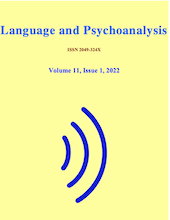An Exploration of Multilinguals’ Voice-Hearing Experiences
Abstract
Research on multilinguals’ voice-hearing, sometimes termed auditory-verbal hallucinations, is dominated by psychiatrists’ reports, skewing toward etic over emic approaches. Most also pre-dates developments in both voice-hearing and multilingualism research which highlight the complexity and dynamic nature of both phenomena and shows little cross-fertilisation between the two fields. This paper sits within this gap, presenting results from an in-depth interview study with ten UK-resident multilingual voice-hearers analysed via constructionist reflexive thematic analysis. A high proportion of participants described hearing voices they did not (fully) understand, challenging the dominance of the hypothesis that voice-hearing originates from misattributed inner speech. This set of experiences is presented along a spectrum with a complex array of associated emotions and subtle experiential distinctions. The relationship between language experiences, voices’ languages, and associated emotions was similarly complex and individual: participants described voices both reflecting and distorting or shifting the contexts, domains, interlocutors and feelings associated with their various languages. This has implications for therapeutic and peer support for those who are distressed by their voices, as well as opening up new avenues in voice-hearing phenomenology and aetiology.

This work is licensed under a Creative Commons Attribution 4.0 International License.

This is an Open Access journal. All material is licensed under a Creative Commons Attribution 4.0 International (CC BY 4.0) licence, unless otherwise stated.
Please read our Open Access, Copyright and Permissions policies for more information.








